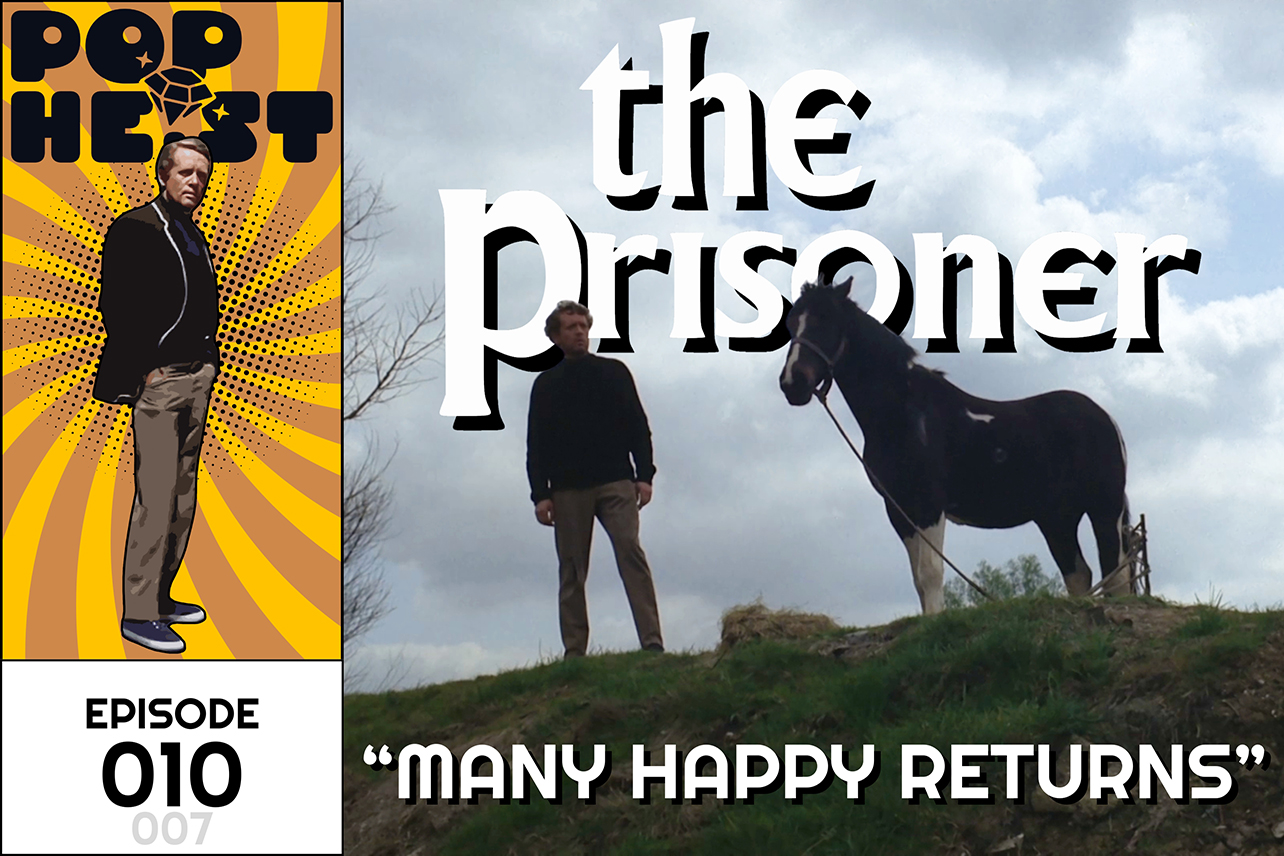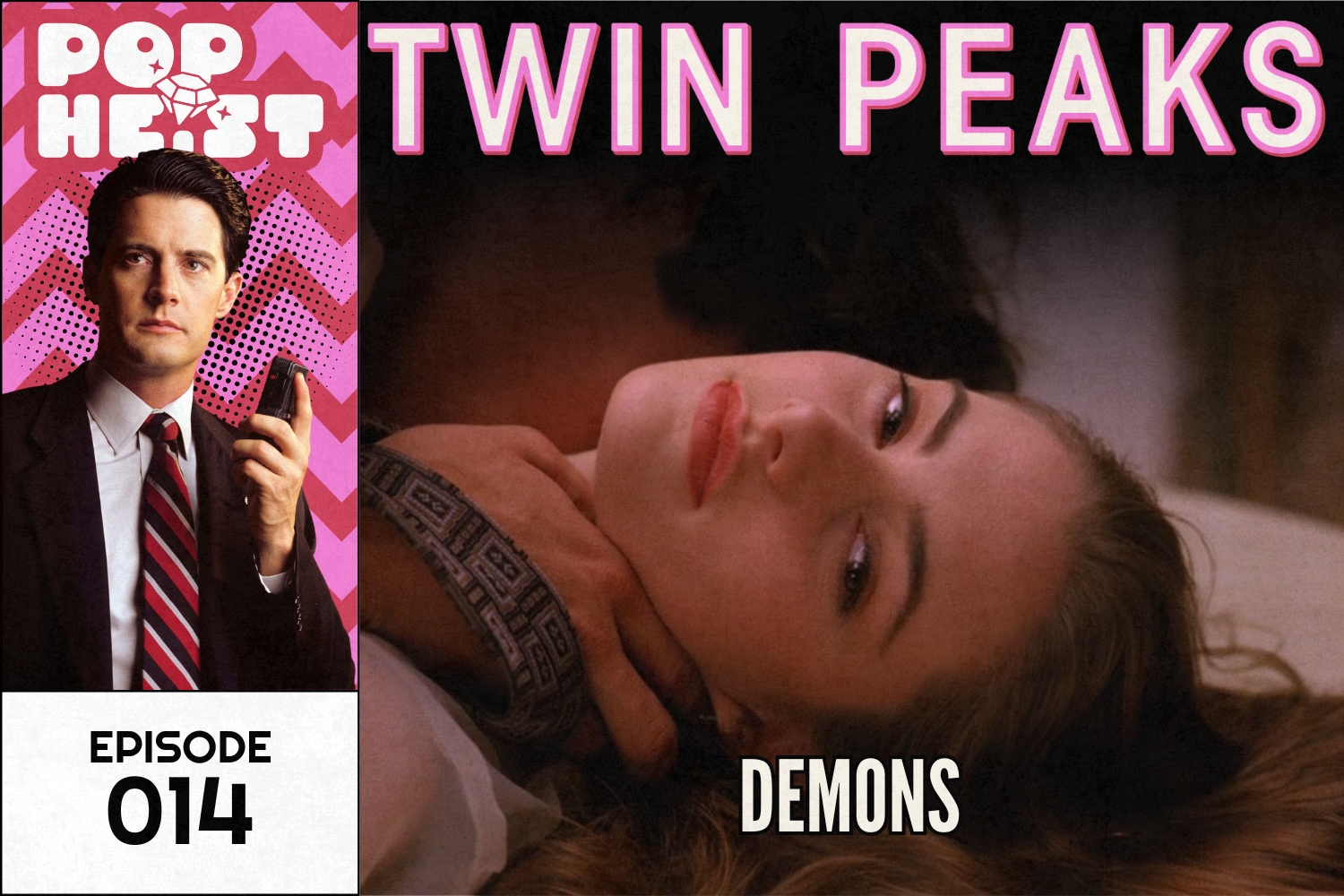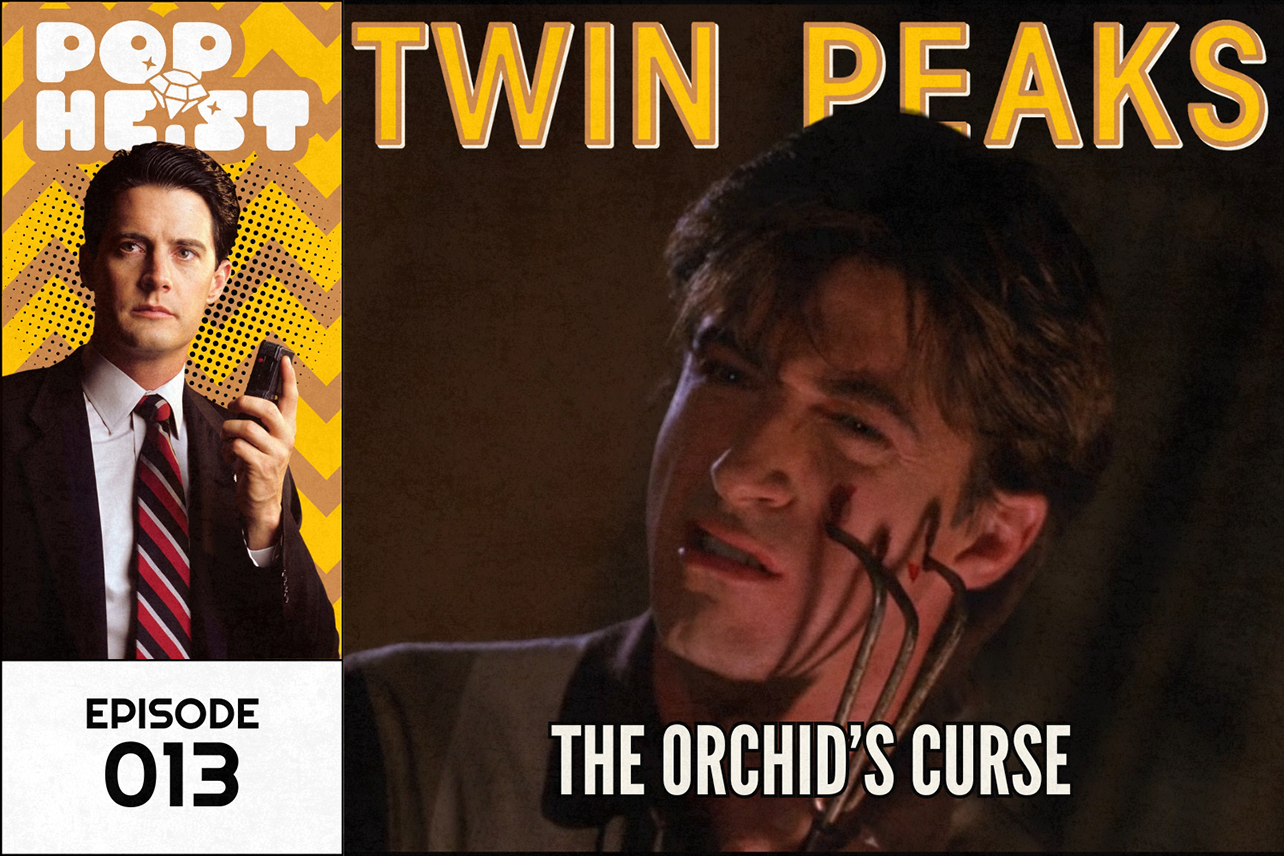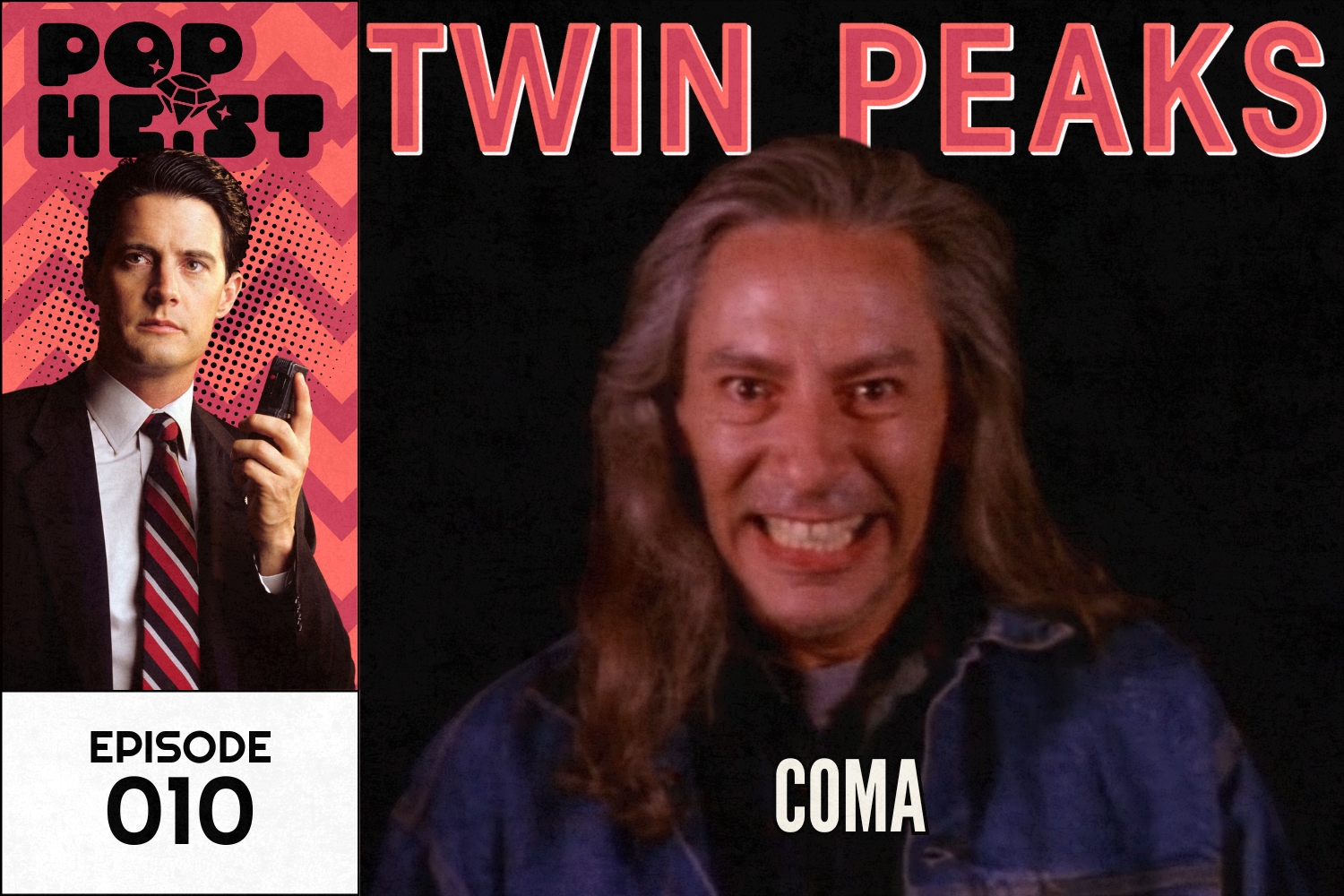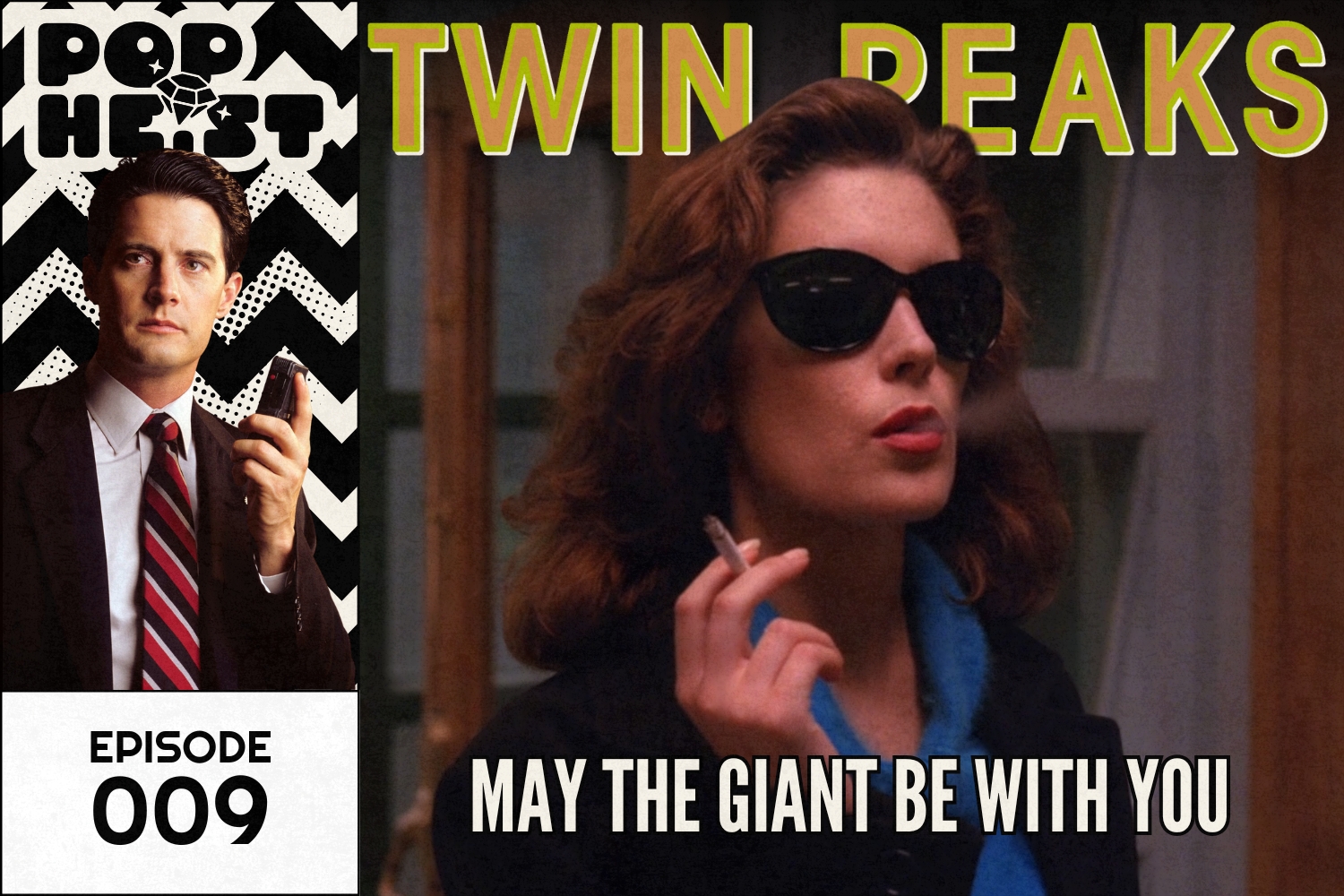In PRESTIGE PREHISTORY, Pop Heist critic Sean T. Collins takes a look at classic TV shows that paved the way for the New Golden Age of Television — challenging, self-contained stories from writers and filmmakers determined to push the medium forward by telling stories their own way.
The Prisoner Episode 7 (airdate order) / Episode 10 (AVC order)*
"Many Happy Returns"
Original Airdate: Nov. 10, 1967
Writer: Anthony Skene
Director: Patrick McGoohan (as Joseph Serf)
Cast: Patrick McGoohan, Georgina Cookson, Donald Sinden, Patrick Cargill, Nike Arrighi
*NOTE: The Prisoner's proper running order is a matter of dispute; Pop Heist is using the AV Club order for the show
It begins in silence, and in silence it stays. Other than some unintelligible radio chatter and a couple of lines barked in German, 19 minutes pass after Number Six proclaims "I am not a number, I am a free man!" at the end of the opening sequence before anyone utters a single word. The Village is deserted, so there's no one there to speak. The boat which Six builds and sails to freedom, sails all the way back to England in fact, houses exactly one passenger, and he has nothing to say to himself. Six's first line of dialogue — the episode's first line in English — is a question, to a Roma traveler he encounters on a seaside cliff. It's just three words and just three syllables: "Where is this?"
That is the question, Number Six. That is the question.
I'll spare the suspense, since you've watched the episode already (hopefully): Like "The Chimes of Big Ben" before it, this is an episode in which a days-long escape by sea is revealed to be an elaborate ruse by the Village braintrust to break Number Six's spirit. Only this episode goes even harder. This time, Six lacks the ally he had in Nadia, the undercover operative who posed as a dissident and friend.
But he also lacks any direct opposition — no Number Two, no Supervisor, no legion of numbered and easily punchable goons, no Rover. Of the familiar enemy figures, only the mute and mysterious Butler appears by the end of the episode, and he's filmed from behind carrying a huge umbrella, recognizable only by his distinctive height and dress. No friends, no foes: Number Six is truly on his own.
What follows is an old-school Ordeal. This is my pet term for narratives that are mostly about some person trying to get from Point A to Point B and getting the absolute physical and/or psychological tar beaten out of them every step of the way. In film, think Deliverance, Sorcerer, The Revenant, The Descent, Gravity; you can even throw in some "one crazy night" movies, like After Hours. (On TV, I've only really ever seen it attempted by American Primeval, the Netflix Western created by The Revenant writer Mark L. Smith; in a way, you could consider Battlestar Galactica one giant Ordeal.)
So Six scouts out the Village and determines that other than himself and that curious black cat from "Dance of the Dead," the place is empty. He cuts down trees and empties oil barrels to create a buoyant sailboat. He breaks apart one of the Village's ubiquitous unshutdownable radios to create a magnetized compass. He takes photos and grabs a copy of the Village newspaper to prove his story. He hides the film in a plastic bag to prevent it from getting ruined. He meticulously keeps track of his progress in a makeshift captain's log. He shaves at sea. He passes out from exhaustion.

He gets found and dumped overboard by German pirates (!! And also, which Germany??) who steal all his shit. He swims aboard their vessel, starts a fire to distract them, and engages in hand to hand combat. He's forced to leap overboard and swim for shore when one of the Germans begins shooting at him. He wakes up having washed ashore on a rocky beach. He climbs a sheer white cliff like he's Link in Breath of the Wild.
And now things begin to get interesting. The first people Number Six encounters on land are a trio of Roma travelers, with whom he interacts atop a hill, dramatically shot from below with the sun as a backlight. The woman who seems to be in charge (Nike Arrighi) directs him to the nearest road, but thanks to the staging it feels as if he's interacting with some kind of cthonic goddess or Biblical messenger from heaven. It's a symbolist moment, powerful and indelible.
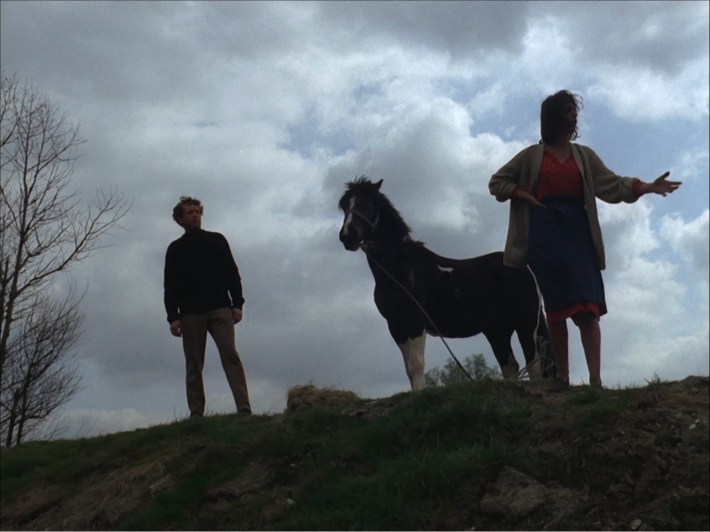
When Six reaches the road and sees a familiar English bobby, he doesn't react with the relief you might expect. Perhaps recalling his last "visit to England" — a sham, staged with the cooperation of old colleagues from British intelligence whom he considered trusted friends — Number Six no longer trusts authority. Dodging a checkpoint on the road that seems to be a dragnet with which to ensnare him, he makes his way all the way back to his house, the interior of which has been replicated for his house in the Village.
But a house is not a home without an occupant, and Six soon finds that both his domicile and his hand-built sports car (licence plate KAR-120C) are in the possession of a new owner. Mrs. Butterworth (Georgina Cookson) is a seemingly unflappable and (frankly) very sexy older woman, the widow of a Navy officer and the owner of a jaunty driving cap. Undisturbed by Number Six's torn and tattered appearance, she takes him in, feeds him, and almost frantically insists that he stay long enough to wash up and get a change of clothes rather than dash off to his next destination. When he eventually does so, he does it back in his old car, with Mrs. Butterworth's blessings — and a promise to reunite for his birthday, which is tomorrow.
From that point forward, it's impossible not to feel that things are too good to be true. Recreating the opening sequence, Six barges in on the bald and bespectacled superior to whom he tendered his resignation. (The wordless role is played by George Markstein, script editor and a major influence on the show's creation and development until his departure deep into production over creative differences with Patrick McGoohan.)

He's then reunited with old colleagues to whom he tries to explain his plight, with his photos and the newspaper as evidence. Thorpe (Patrick Cargill), a balding, sneering fellow, is skeptical. The Colonel (Sir Donald Sinden), younger and apparently closer to Six in his pre-Village days, is more inclined to believe. Eventually they corroborate enough of his story to begin the process of verifying it beyond a shadow of a doubt, by actually finding the Village itself.
Officers from the Royal Navy and the RAF are called in, using their expertise to narrow down the Village's possible location based not only on Six's descriptions and photos, but also on Six's travel time and possible range given oceanic and wind conditions. They narrow the location down to an area off the coasts of Spain, Portugal, and Morocco, and dispatch a pilot (Brian Worth) to scout the area with Six as his passenger for confirmation.
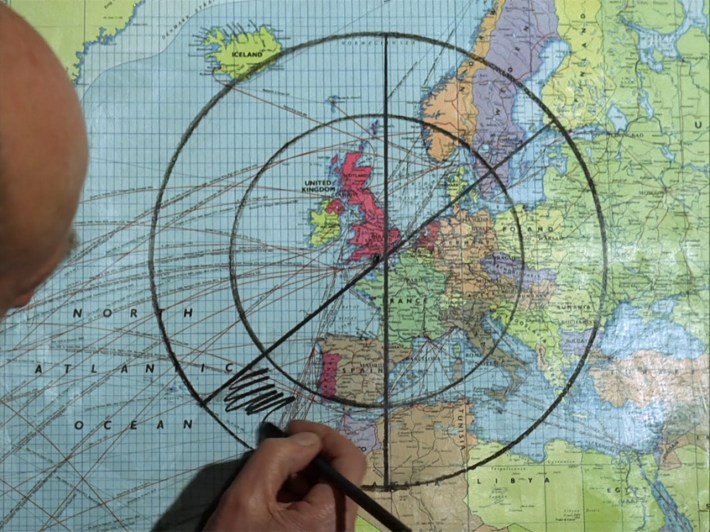
"Be seeing you," the pilot says when they actually do locate the Village, ejecting Six from the plane and flying away.
Six's parachute lands him safely on the beach. He returns to his house under the watchful green eyes of the black cat — and finds Mrs. Butterworth, the new Number Two, waiting for him with the birthday cake she'd promised him.
"Many happy returns," she says, brightly and wryly, as the Villagers begin their usual brass-band parading outside.
The end.
"Many Happy Returns" is the kind of rich text that often reduces me to making itemized lists of everything fascinating about it. And yeah, that's what I'm gonna do.
- Let's start with Mrs. Butterworth, the new Number Two. For one thing, the show plays fast and loose with its own rules, recycling an old, male Number Two's voice and replacing the traditional Number Two reveal with additional footage of Rover on the beach during opening credits. Its as if the show itself is colluding with the Village to fool not just Number Six, but us.
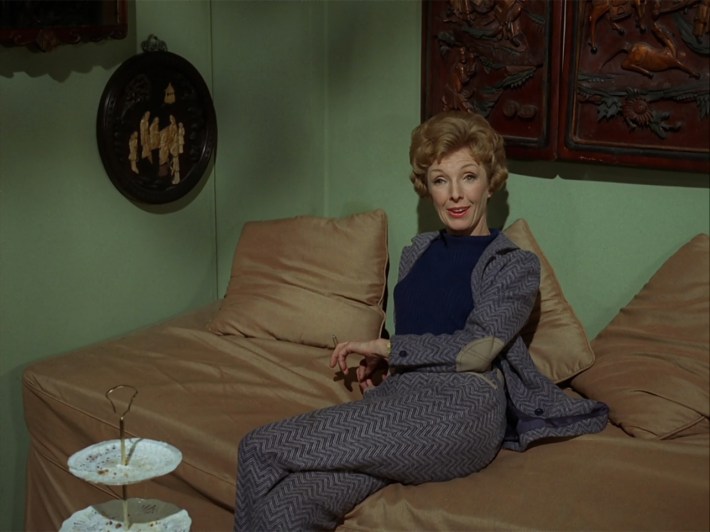
- Let's continue with Mrs. Butterworth, who … how can I put this … seems extremely DTF. I'm not crazy, am I? I admit to finding older, aristocratic women attractive as a rule (look, we're all adults here), but the way she leans against the door as she welcomes him in, looks back at him as she guides him through the house, reclines on the sofa as she talks to him … Add it up, and the subtextual libidinal pull of Six that has driven some of the previous (male) Number Twos has become text.
- What does the cat represent? In my review of "Dance of the Dead," I noted that Six has certain feline characteristics — independence, curiosity, a kind of mischievous spite against being told what to do — that made him and the cat kindred spirits. Here, though? He feels more like a witch's familiar, an avatar of bad luck, the eyes of the underworld. The cat standing amid the ruins of a shattered teacup and watching Six trudge across the beach back to his idyllic prison is one of the show's most indelible and troubling images to date, and I'm not sure I could explain exactly why.
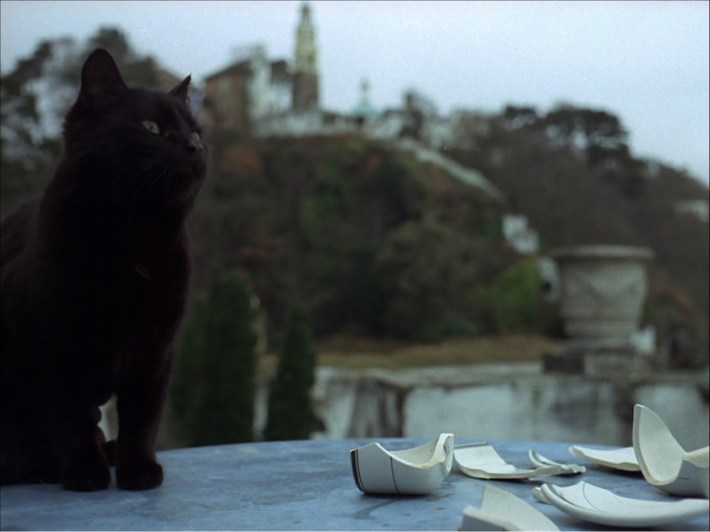
- What about the Colonel and Thorpe? Are they in on it too? I can't decide if Thorpe's skepticism or the Colonel's belief is the more likely stance for an agent of the Village to take when confronted with an escapee. At least one of them had to be in on it, since someone needed to tip off that milkman to take out the pilot and take his place in the cockpit. Maybe they were both in on it.
- And maybe that's the real point. In a sense, this confirms whose side the Village is on — Number Six's own — and that's important. Whodunit, however, is less important than where it was done. Unlike "The Chimes of Big Ben," where Six's escape by land, sea, and air was all monitored by the Village and rerouted him back immediately, Six really does escape this time. He really does make it back to England, to London, to his old house, to his old car, to his old office, to his old friends. He makes it home.
But he doesn't make it out of the Village, not really. It was emptied for his benefit, so that he could free himself. His home has been occupied by one of theirs. His friends and commanding officers are complicit. He's no safer, no more free, on the streets of London than he is in the little winding lanes of the Village. Wherever he goes, there he is. It's the hardest hitting blow he, and we, have received yet. Mrs. Butterworth's mocking birthday greeting is just the icing on a bitter cake.
The reason it hits so hard, though, is because for minute after minute after minute, the episode pulls its punches. The wordless silence of Number Six's discovery of the abandoned Village, assembly of the boat, journey by sea, fight with the pirates, and arrival on land — all of it directed by McGoohan himself — makes you feel every moment of his arduous undertaking. When he finally makes contact with Mrs. Butterworth, whose language he speaks and who is seemingly neither antagonistic toward nor afraid of him, you feel as grateful as he finally has someone with whom he can really connect — with whom he can really talk.
And just when you're getting comfortable, boom, the episode hits the ejector seat, and you're left lying on the wet sand, knowing you can never trust anyone again. "Where is this?" Everywhere.
This recap was originally accessible to paid subscribers only, and future recaps in this series are available now for paid subscribers. If you haven't already, consider supporting worker-owned media by subscribing to Pop Heist. We are ad-free and operating outside the algorithm, so all dollars go directly to paying the staff members and writers who make articles like this one possible.
